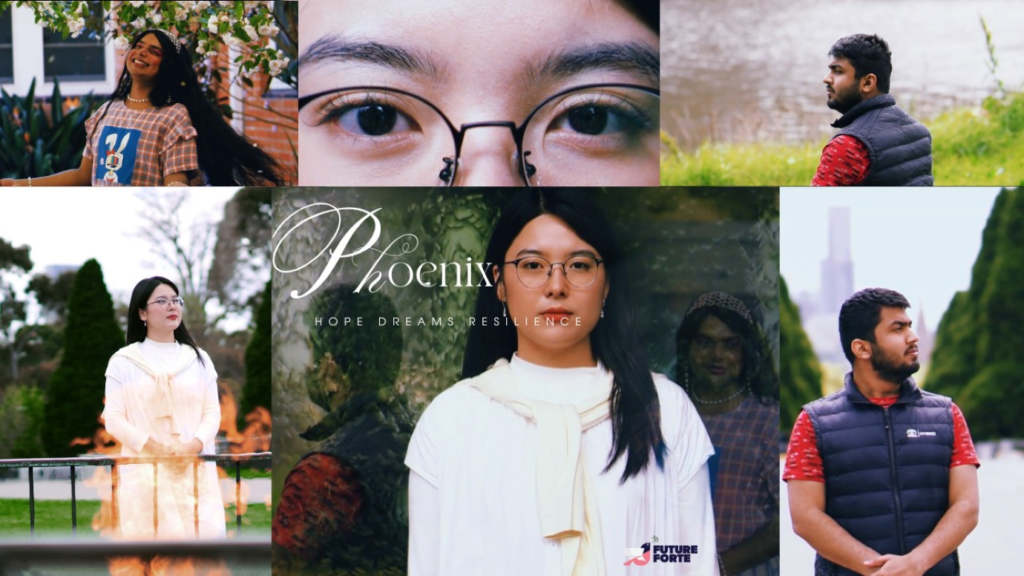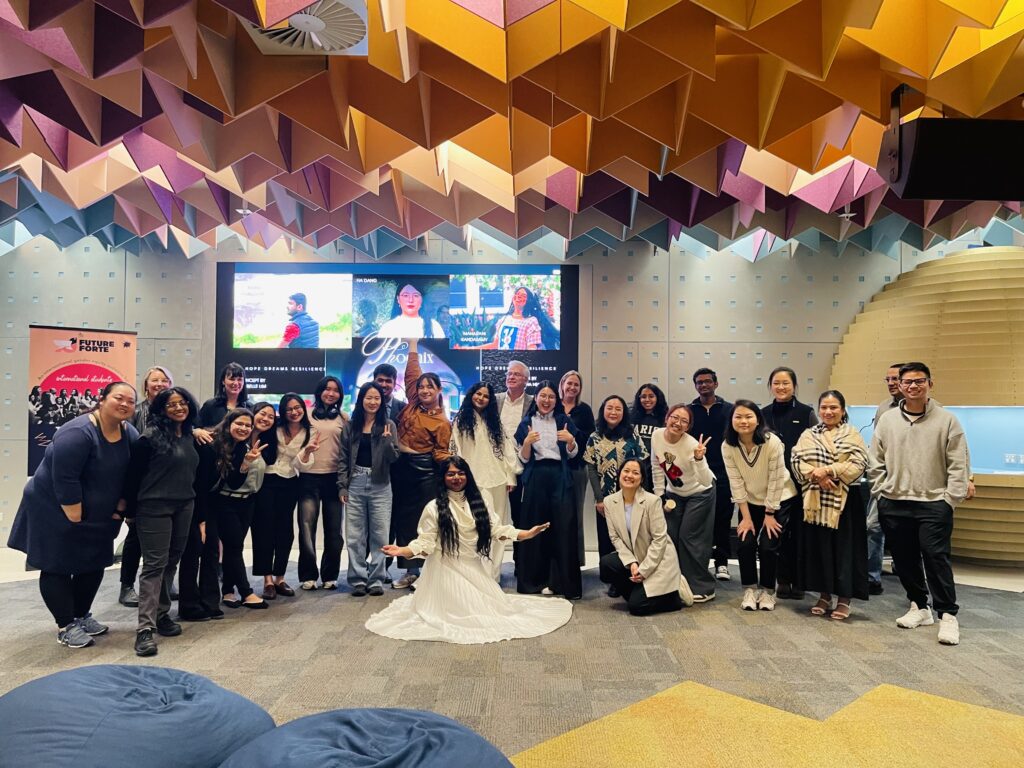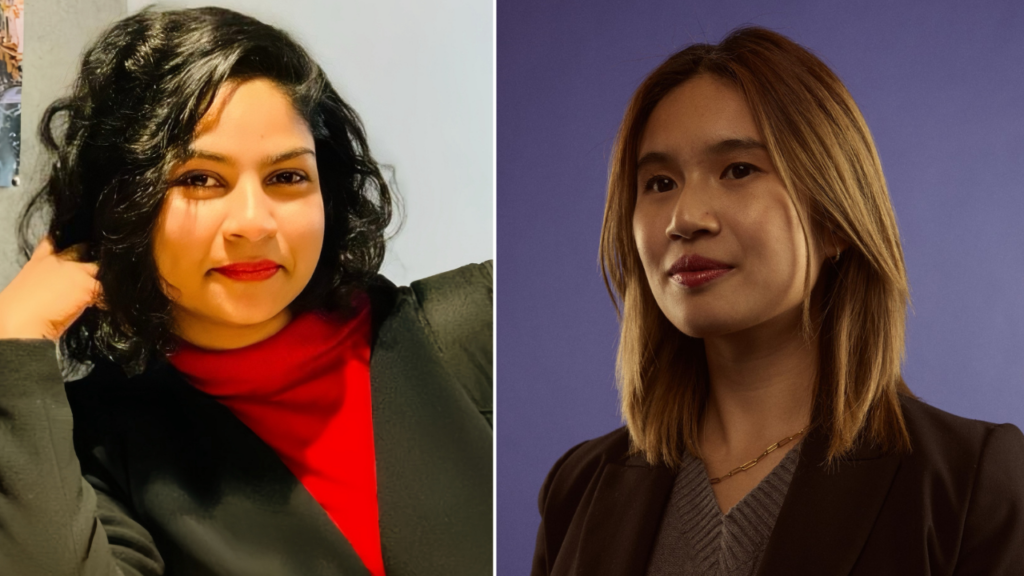“The highs sound great — education opportunities, the friendships, new experiences. But the lows… they hit really hard. And we rarely talk about them. The discrimination. The exclusion. The abuse. Because we’re scared — of losing our visas, of not being believed, of burdening our families.” — Phoenix
When Elena says these words in Phoenix, our short film on international student life, there’s a pause. Not for effect — but for truth. When we screened the film in front of international students at Monash College last week, there was a collective inhale. It’s the kind of line you feel in your chest, because it’s not scripted. It’s lived.
We made Phoenix because we were tired of being misrepresented. And during this federal election, it’s happening again.
International students — all 850,000 of us — are once again being blamed for systemic failures. And as the federal election campaign gathers momentum, we see it happening again. Blamed for a housing crisis we did not create. Framed as a strain on infrastructure we help build. Cast as economic threats by politicians who speak in percentages, not people.
This week, Peter Dutton has proposed increasing visa application fees to $5,000, after the Labor government’s sudden doubling last year to $1,700. In 2020, at the height of the pandemic, Scott Morrison told us to “go home.”

But we have more than done our fair share to deserve to feel safe in our new, even if temporary, home. Even if you’ve never met an international student, you’ve almost certainly met someone who depends on them.
International students contribute over $45 billion to Australia’s economy each year. More importantly, we contribute to communities: working in aged care, tutoring in public schools, delivering groceries, volunteering at food banks, organising cultural festivals. As highly skilled and educated professionals, we are also designing software, conducting research, and training as engineers, scientists and healthcare professionals. We are not just passing through. We are shaping this country — even if our names are rarely in the credits.
At Future Forte, a nonprofit by and for international students, we saw the political tide turning again this election season. We knew the media cycle would once again flatten us into villains or victims. So we created Phoenix to tell a different kind of story — one that centres lived experience.
It follows three students — Elena, Nel, and Ranjeni — who are composites of dozens of real people. Their stories are not extraordinary. They are, in fact, heartbreakingly common.
Elena dreams of starting a fashion label that honours her culture, while working three jobs and surviving silent abuse. Nel speaks about being the first in his family to study abroad, finding his way post-COVID in a system that often excludes him. Ranjeni shares their search for identity and belonging — leaving behind judgment at home, only to face new kinds of alienation here.
As co-creators of Phoenix, we bring our own truths. Both of us survived traumatic experiences and abuse while studying in Australia. Both of us navigated mental health crises long before we knew one another. Long before we had the language to speak about it. These experiences are not unique. They are just unspoken. They’re consequences of a system that sees us as temporary, expendable, or invisible.

Phoenix doesn’t offer policy prescriptions. It offers perspective. It doesn’t shout. It listens. It makes space for what’s been ignored — and does so with quiet power.
It mirrors who international students are. We’re not asking for pity. We’re asking to be recognised — as equals, with dignity. Even when the truths are hard to hear.
We hope that for every person who watches it — especially those who’ve never met an international student — something shifts. That the students sitting in classrooms, serving your coffee, or taking care of your loved ones are not just “temporary migrants.” We are human. And we are doing the work. Often invisibly. Often despite the odds.
What we need from you isn’t rescue. It’s allyship.
That means challenging narratives that blame migrants for systemic problems. It means amplifying stories that go unheard. It means standing with us when policies turn punitive, and remembering us not just as fee-payers — but as colleagues, neighbours, fellow community builders, and future global leaders. No five-minute film can hold the full complexity of our experience. But Phoenix is a start. It is a mirror, a message, and a reminder that resilience isn’t always loud. Sometimes, it looks like showing up anyway.
Support Women’s Agenda! We are 100% independent and women-owned. We’re covering the Federal Election from the perspective of what matters to women, and always keeping the issues that matter for women on the daily agenda. Foundation memberships are just $5 a month.
Bonus: you’ll receive our weekly editor’s wrap of the key stories to know every Saturday.


